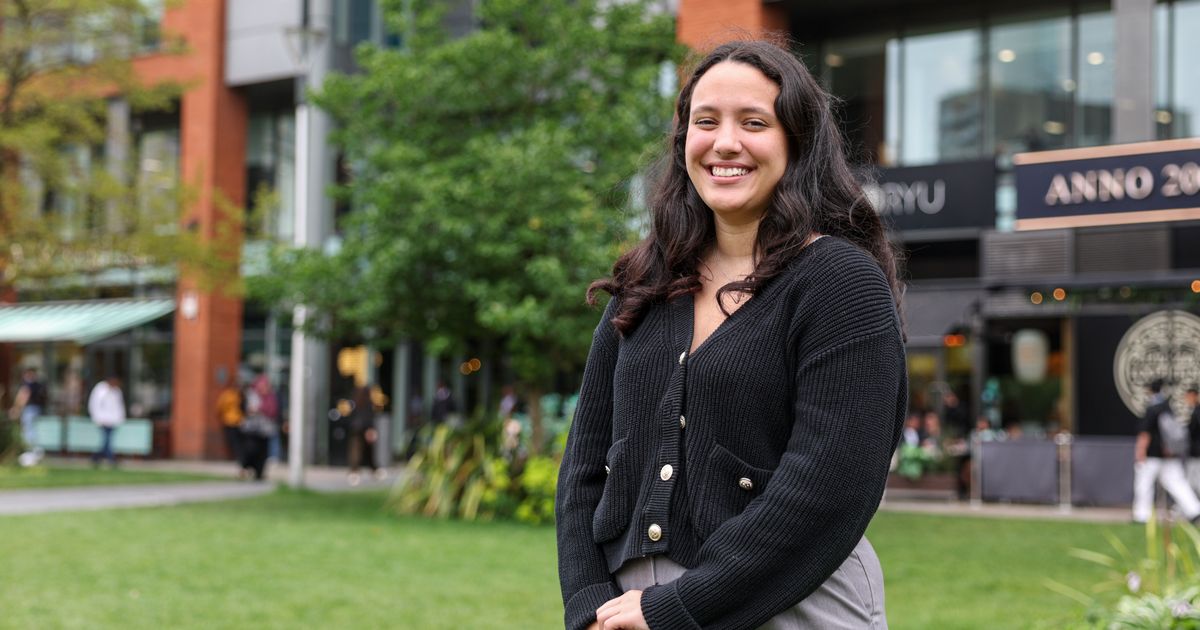She may not realise it, but she is part of a ‘revolution’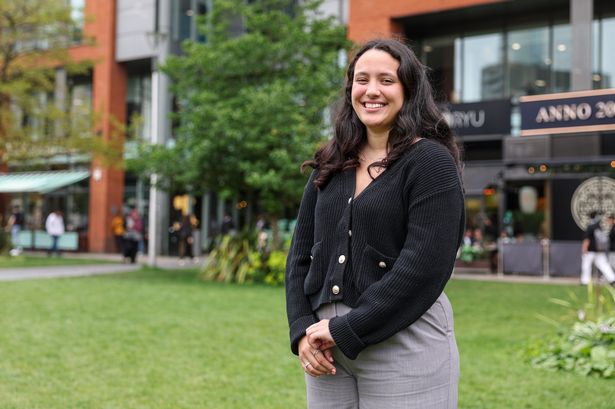 Veronika Torres Rondon, 19, is a Degree Apprentice at the Bank of New York in Manchester(Image: Kenny Brown | Manchester Evening News)
Veronika Torres Rondon, 19, is a Degree Apprentice at the Bank of New York in Manchester(Image: Kenny Brown | Manchester Evening News)
While all of her friends were picking their A Levels, Veronika Torres Rondon decided to take a different path.
She’d heard about a new type of qualification – one that involves work experience rather than solely spending time in the classroom. And crucially for Veronika, from Romiley, who was unsure whether she’d like to go to university in a couple of years’ time, it kept her options open.
“I just thought ‘go with your gut’,” Veronika recalls as she reflects on her decision to sign up for the software engineering T Level.
After completing the two-year course – equivalent to three A Levels and involves a 300-hour work placement – Veronika received several job offers. Now, at the age of 19, she’s doing a degree apprenticeship at the Bank of New York in Manchester.
Sign up to the MEN Politics newsletter Due North here
It means that, as well as working full-time in finance, she spends one day a week studying for a degree that she gets for free.
“All my friends did A Levels,” she tells the Manchester Evening News. “Now they wish they did a placement.”
Veronika may not realise it, but she is part of a ‘revolution’ that is taking place in Greater Manchester. It is being led by Labour mayor Andy Burnham – and one former Conservative education minister hopes it will become an ‘evangelical movement’ across the country.
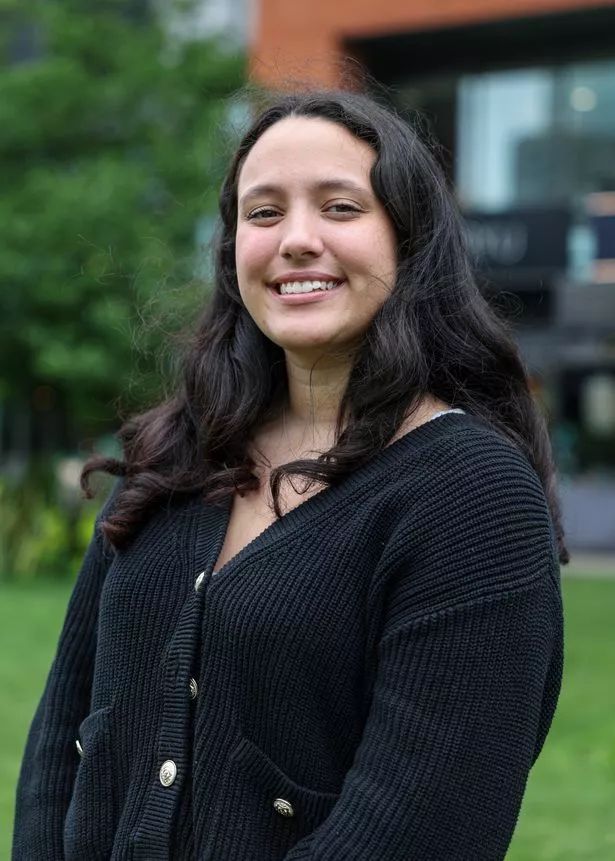 Veronika is getting a degree for free(Image: Kenny Brown | Manchester Evening News)
Veronika is getting a degree for free(Image: Kenny Brown | Manchester Evening News)
Launched last year, the Manchester Baccalaureate, or MBacc, is Mr Burnham’s attempt to give the two-thirds of teenagers in Greater Manchester who don’t go to university a ‘clear line of sight to high-quality jobs’ – and give businesses the skilled workforce they need.
It’s his answer to the English Baccalaureate, or EBacc – a set of GCSE subjects that sets student up for a place at university.
Created by the Conservatives, the last government wanted 90 per cent of all pupils across England to be studying the EBacc, which includes English, maths, three sciences, a language and history or geography, by 2025 – and they have held schools to account for this target.
But according to Audenshaw School principal Peter Taylor, this is simply not the ‘right curriculum’ for some students.
“The 90pc target was set out for us all as school leaders,” he says. “We’ve been asked about it and held to account on it.
“I proudly say I’m on 90pc. Most of our boys are on the MBacc pathway and nobody has ever really asked me about that.”
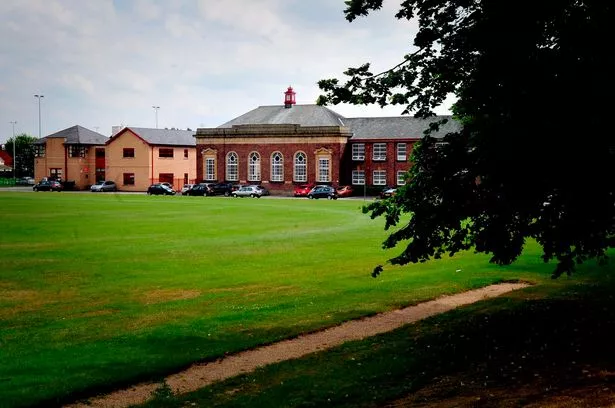 Audenshaw School was one of the first schools to sign up
Audenshaw School was one of the first schools to sign up
Peter is one of the MBacc evangelists. His school is among 26 across Greater Manchester that have piloted the scheme in its first year.
In theory, the MBacc maps out pathways to different careers, guiding pupils to pick the right subjects at school from the age of 14.
Dividing Greater Manchester’s ‘growth sectors’ into seven ‘gateways’, the MBacc offers routes to manufacturing and engineering, finance and business, digital and technology, culture, sport and creative industries, construction, education and health and social care.
The concept has come under some criticism, including from the last Conservative government, for ‘narrowing’ young people’s options.
But according to Jess Heap, assistant headteacher at Rayner Stephens High School in Dukinfield, that’s not what’s happening at all.
“In practice, it’s an addition,” she says. “The other options are all still there.
“If you change your mind, there’s nothing stopping you doing anything. It’s more ‘have you considered this if you enjoy it?'”
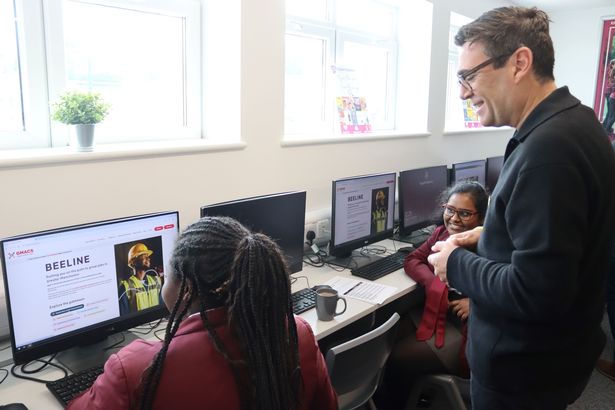 The Beeline platform was launched at Rayner Stephens High School in Tameside last year(Image: Copyright Unknown)
The Beeline platform was launched at Rayner Stephens High School in Tameside last year(Image: Copyright Unknown)
So what has changed at participating schools? For starters, a new Educator Toolkit has been created so teachers can help students work out what opportunities are out there within technical education and in the world of work once they’ve finished their studies.
Beeline, a new digital careers tool, also launched last year and, has so far helped more than 4,500 young people find opportunities.
Some students have learned how to code too as schools take part in a trial of a new Raspberry Pi Foundation certificate, while 330 students across 11 schools in Greater Manchester have been been involved in the equalex pilot, helping students find work experience.
‘Workplace safaris’ have also been hosted by employers, offering students a chance to visit businesses – and in some cases, find work.
That’s how Harry McQueen, 17, from Dukinfield found out about Whitecroft Lighting where he now works as an apprentice engineer.
“I knew I wanted to have a degree in engineering,” Harry says, “but I didn’t want to go to uni really.
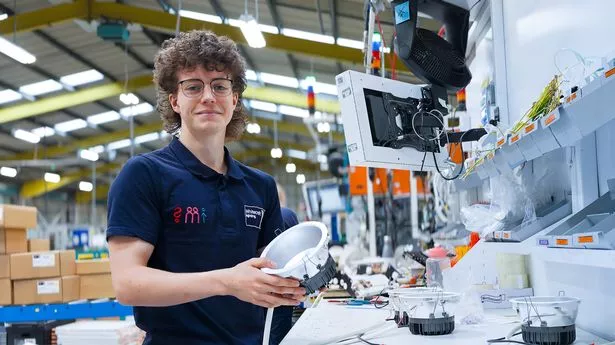 Harry is an apprentice engineer at Whitecroft(Image: Whitecroft Lighting)
Harry is an apprentice engineer at Whitecroft(Image: Whitecroft Lighting)
“I’m not really an academic student. But engineering was my best subject because it was more hands-on.”
It was on the workplace safari at Whitecroft where Harry first met Warren Jones, who is company’s learning and development officer.
The lighting manufacturer now works with 13 across Tameside in the hope that this will help them find the ‘leaders of the future’.
“When I first came through the business, we had to go out looking for apprentices,” Warren explains.
“Since we’ve started connecting with these schools, we plant the seeds early.
“We’re giving something back but we’re getting the talent we require. The next leaders are on our doorstep.”
Harry’s Level 3 apprenticeship in engineering, which he does through Tameside College, is what you might picture when you hear about technical education – but there are other industries now offering ‘hands on’ experience as an alternative to university too.
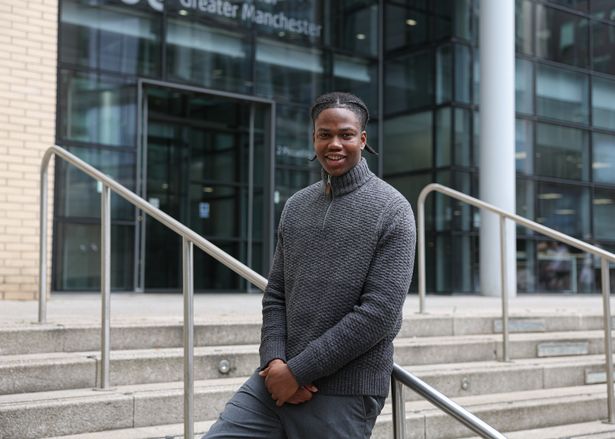 Gideon Uduebor, 18, went down a different route(Image: Kenny Brown | Manchester Evening News)
Gideon Uduebor, 18, went down a different route(Image: Kenny Brown | Manchester Evening News)
Like Veronika, Gideon Uduebor, 18, who lives near Bury, recently completed a T Level – in his case, in management and administration.
The new qualification for 16-to-19-year-olds launched in 2020 and involves an industry placement lasting a minimum of 45 day.
However, businesses have been slow to take on T Level students, leaving some struggling to find the placement they need to qualify.
Despite these teething problems, there were 2,578 T Level students in Greater Manchester last year, up from 1,817 the year before, with 94 pc passing their course and 68 pc achieving top grades – exceeding the national averages of 88.7 pc and 62.7 pc respectively.
“As soon as I heard about T-levels I knew that’s what I needed to do,” Gideon recalls. “I didn’t even know that it existed until that day.
“I feel like it is a good next step for people leaving secondary school who kind of thrive more learning on the job,” he explains.
According to Gideon, some people on his course at Bury College struggled to find the placements they needed for the qualification.
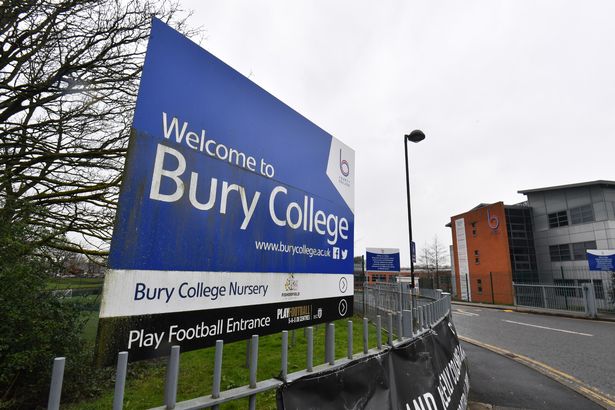 Gideon completed his T Level at Bury College(Image: Manchester Evening News)
Gideon completed his T Level at Bury College(Image: Manchester Evening News)
However, in the end, Gideon did two, including one at Transport for Greater Manchester (TfGM) where he now works as a trainee.
Beth Wilson, Head of Organisational Development at TfGM, says that organisations can feel ‘a bit scared’ about offering placements.
“People are worried about time, about commitment,” she said. “I’d say just be brave, just try, offer a student – one or two students.
“Place them with people who are really enthusiastic about early careers, give it a go, learn from what doesn’t go right, and then build.”
T Levels are growing. This year, there will be an extra 650 placements available in Greater Manchester, including some at the NHS.
Nicola McLeod, the Assistant Director for Education, Work and Skills at the Greater Manchester Combined Authority (GMCA), hopes to get more schools involved in the MBacc too, with a target of reaching half of all secondary schools across the region by next year.
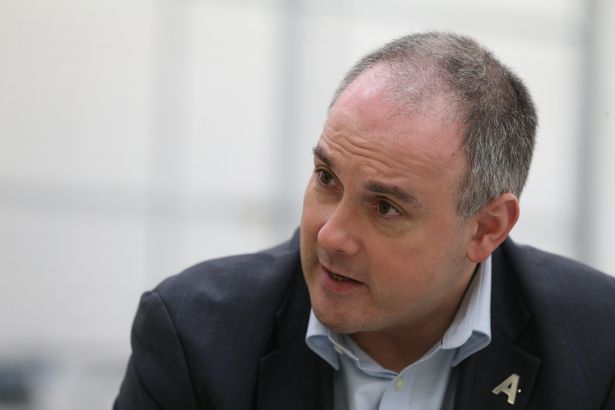 Former Tory minister Robert Halfon is a supporter of the scheme(Image: Newcastle Chronicle)
Former Tory minister Robert Halfon is a supporter of the scheme(Image: Newcastle Chronicle)
She admits there has been some confusion among schools as to what the MBacc actually is, but she hopes to ‘change the narrative’.
“I think there’s a view out there that it’s for those schools whose kids are less able or can’t achieve,” she says.
“It’s such a poor attitude but you’ve got that preconceived view. It’s annoying.”
Robert Halfon, who served as an education minister under the Conservative government, says that ‘snobbery’ is part of the problem.
“We need to change the culture and we have changed it in some ways but there’s a long way to go,” he tells the M.E.N..
“Although I come from a very different political tradition, I think Andy Burnham, what he’s doing on education and skills is quite extraordinary. I’m saying this as a Conservative.
“I think he is leading potentially a skills revolution in our country and creating a movement to transform our education system.
“It’s going to start in Manchester but I believe in 10 years’ time, hopefully, it will spread nationally.”
